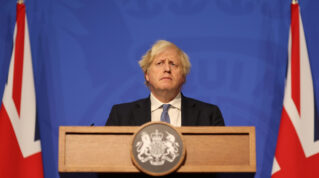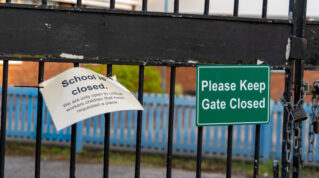Some of the temporary changes made to respond to the pandemic should now be made permanent, argues Benoit Guerin
The coronavirus pandemic and lockdown created unprecedented disruptions for schools in England. In response, a host of changes were made including the provision of additional funding, delivering lessons remotely and providing free school meals at home and during the holidays. A new report published today by the Institute for Government assesses the effectiveness of changes made to public services during the crisis and makes recommendations on which should of these should be kept.
In schools, the most important change was the cessation of face-to-face teaching for all but children of key workers and vulnerable children, with only 2 per cent of all pupils still attending school in person in April and May.
Schools quickly moved to remote learning either through live, online lessons or ‘offline’ worksheets or recorded videos. However, pupils did not have equal access to high quality learning materials. The government shipped £100m worth of laptops and Wi-Fi routers so children could get online. However, it initially focused on getting this equipment to disadvantaged year 10 pupils, children and young people with a social worker, and care leavers (a small proportion of children who didn’t have the right equipment). It wasn’t until early August that the government widened the scheme to disadvantaged pupils in Years 3-11 and published guidance on when laptops can and cannot be ordered.
Differences in access to technology and lower engagement with online learning among disadvantaged pupils compared to better-off pupils may well have increased the attainment gap during the initial national lockdown. As the number of coronavirus cases increases and further local or national lockdowns are possible, remote teaching will continue to be important. We therefore recommend that if government wants to prevent disadvantaged children from falling further behind, it should provide additional funding so that every child who needs a laptop, router or other technology to properly access remote learning can have them.
The government also funded a £1 billion catch up package to close the attainment gap.
Missing out on schooling can result in children earning less later in life
Missing out on schooling can result in children earning less later in life and having a higher probability of being unemployed or in poverty. Thanks to this new funding, schools can invest in interventions like one-to-one tuition and small-group tuition which can help pupils make substantial academic progress. However, while the pandemic is unprecedented, missed schooling is not. Every year, poorer pupils suffer from ‘summer learning loss’, which causes them to fall behind by several weeks in particular subjects compared to their better-off peers. The government therefore needs to evaluate how effective its catch-up measures are, and whether to extend them beyond the coronavirus crisis.
As a result of the closures, the government also made changes to free school meals, launching a scheme to provide £15 weekly food vouchers to eligible children who were at home so they could buy food in supermarkets during school closures. Despite early problems and delays, over £380 million of vouchers had been redeemed by mid-August.
The government extended the programme to provide vouchers during the Easter holidays and, following public pressure and campaigning, the summer holidays too. It also enabled those with no access to public funds such as destitute refused asylum seekers to access it.
Providing food to children can be effective in tackling the attainment gap in the longer term. Children who experience ‘holiday hunger’ have lower cognitive test scores and learn more slowly. In contrast, pupils who benefit from extra money for food or free meals make more academic progress.
At around £300 million, the cost of providing free school meals during all school holidays is only a small part of the £45 billion annual budget for schools. The government has so far rejected calls to extend the scheme further, but it has already u-turned once on this issue and could do so again. It should reconsider the case for providing additional funding for free school meals during holidays on a permanent basis.
The government will be faced with difficult financial choices in the years ahead but there is a strong case for investing more now to prevent disadvantaged children falling behind.
















Your thoughts